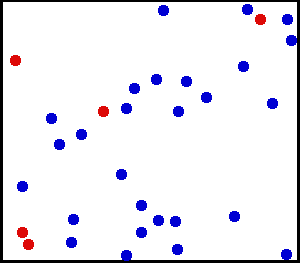The pilot studies which also formed my MRes assignments prompted me to think about ethnographic absence, particularly since my ethnographic approach is largely digital. An interview conducted over the phone for example generates obvious absences like the visual (and other?) sensory cues we enjoy in a face-to-face interview. But more than that, there’s an absence of ethnographic context; during the interview, the participant is divorced from the ethnographic field of study. On the other hand, if as a researcher, I immerse myself in the field as an observer (participant or not), I’m with the participants in our shared digital ‘world.’ What I can never hope to observe however is the ‘real’ lived experience of the participants as they engage with Twitter – what they’re doing, thinking, experiencing in their real world personal bubbles.
I set about thinking of ways to address these absences; what method(s) might fill in the gaps? As I tried to articulate for myself what I would need to do to make my experience of using Twitter manifest to others, a technique I’ve used (and still use) in another context intruded on my thoughtstream – podcasting. When producing 366Web2.0 podcasts, essentially I attempt to describe and explain for listeners what I’m experiencing as I work within a particular Web2.0 tool environment. Might that also provide a way for participants to describe for me how they use Twitter? I decided to give it a try myself:
There’s of course a technical overhead in the sense that potential participants will need to be able to manage the process of audio recording, saving and somehow transferring a file to me. My sense is that most educators using Twitter to support their learning are likely to be further along the digital capability spectrum than most, and are probably well-positioned to be able to do that. I’m keen to explore this further.
What began as a possible solution to a methodological problem changed following a reply I made to this tweet from Aaron Davis, as he shared my recording:
Listening back to the recording as I prepared it for upload, I immediately knew there were things I wished I’d said; activities I experience when using Twitter that absented themselves on this occasion.
No two people can have the same experience when they visit Twitter, but each time each user engages, they have a different experience from the one before; each encounter, each session is unique.
In responding to Aaron’s subsequent reply, I began to follow the notion he’d tabled and wondered how each encounter might change us slightly, so the next time we return we’re not the same as we were before. Not only is the experience different, but we’re different too. Each subsequent encounter will therefore inevitably be different because the participant is different. Furthermore, each time we actively participate (rather than merely lurking), we subtly change something within Twitter. At its simplest, we’ve added to (and therefore changed) the timeline, but our contribution may have had an effect on another Twitter user, which consequently changes the way they interact thereafter. A continual sequence of minor perturbations which iteratively affect all parties.
I’ve been casting around for a metaphor that might help explain my ideas. I’m not quite sure molecular motion in gases quite gets there, but it’s a start.

Each particle continues along its own path until an encounter with another, or the container walls. Each interaction changes the energy or direction of the particle – a micro-level effect equivalent to an exchange between two Twitter users. At the meso-level, two gases can exchange energy between one another as a result of their encounters – like different groups of participants perhaps? At the macro-level however (I guess this would be the Twitter level), the metaphor breaks down since the overall energy of the system will remain constant (assuming the ‘ideal’ conditions we usually confer on this model). I’m attempting to argue that the Twitterverse as a whole changes as a result of the micro-encounters between ‘it’ and its users. The Principle of Conservation of Energy won’t cut me that slack unfortunately. In Twitter, it’s not a zero-sum game and each encounter changes each party, but not in mutually opposite ways. Perhaps I need to look beyond Physics (heresy, I say!) to the biological world? Evolution, perhaps? Something to ponder on the bike on the way home.
Apologies to Aaron in that I don’t think I quite picked up the thread he offered; noticing one of my own proved too big a temptation and I felt obliged to tug and see what unravelled.

[…] which will doubtless affect me (and the results?) in a different way. I also decided on a completely different method (more about that in a future post) which might provide insights on a part of the field, hidden from […]
LikeLike
[…] A Personal Twitter Tour – A post that unpacks the different ways in which I use Twitter to support Ian Guest’s exploration of the platform. […]
LikeLike
Aaron Davis: mentioned this in Read Write Respond #007. via collect.readwriterespond.com
LikeLike
Aaron Davis: mentioned this in 💬 Why teachers are turning to Twitter. via collect.readwriterespond.com
LikeLike
Aaron Davis: mentioned this in Read Write Respond #007. via collect.readwriterespond.com
LikeLike
Aaron Davis: mentioned this in 📰 Read Write Respond #034. via collect.readwriterespond.com
LikeLike
Aaron: mentioned this in Let’s Make Twitter Great Again? – A Reflection on a Social Media of One. via readwriterespond.com
LikeLike
Aaron Davis: mentioned this in A Personal Twitter Tour. via readwriterespond.com
LikeLike